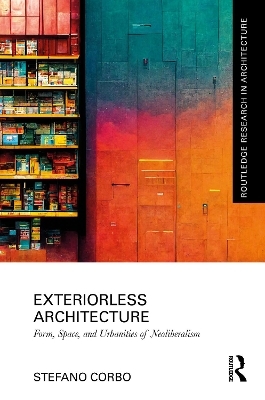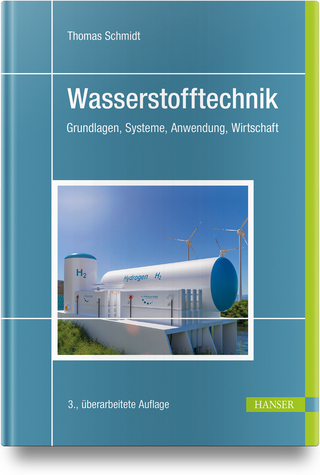
Exteriorless Architecture
Form, Space, and Urbanities of Neoliberalism
Seiten
2023
Routledge (Verlag)
978-1-032-17081-7 (ISBN)
Routledge (Verlag)
978-1-032-17081-7 (ISBN)
This book attempts to delineate three main characteristics for an architecture of the EXTERIORLESS.These three aspects—Interface, Expanded Domains, and New Forms of Urbanity—constitute the three main sections of the book.
The current phase of capitalist development manifests itself through a very diverse range of spatial byproducts: data centers, warehouses, container terminals, logistics parks, and many others. Generally considered as mediocre and banal examples that sit outside of pre-established disciplinary canons, these architectural episodes are extremely relevant. They are relevant not for their aesthetic or historic qualities but for what they represent – for the system of values these spaces embed. They express specific power relations, exacerbate issues of labor, and generate dramatic processes of subjectivity. Most importantly, these architectures, despite their formal and typological heterogeneity, belong to a common paradigm: the EXTERIORLESS.
How can an architecture of the EXTERIORLESS be defined? How does it differentiate from examples and manifestations of the past? How do notions of legibility, form versus function, typological articulation come into play?
In situating the spatialities of contemporary capitalism within the larger debate on Anthropocene, Post-Anthropocene, and Capitalocene, the book attempts to answer those questions by delineating three main characteristics for an architecture of the EXTERIORLESS: its physical and symbolic role as interface; its ambiguous condition of being at the same time local and global, isolated and connected, compressed and expanded; and, lastly, its contribution to new forms of urbanity in absence of the traditional city. These three defining aspects constitute the main sections of the book. Each section includes two chapters covering a wide spectrum of themes and examples. In its tripartite organization, the book describes the influence that the experimental architecture of the 1960s has exerted on late-capitalist spatial byproducts; it analyzes the impact of logistics on the redesign of the territory; and it introduces the radical processes of urban transformation generated by the EXTERIORLESS.
The current phase of capitalist development manifests itself through a very diverse range of spatial byproducts: data centers, warehouses, container terminals, logistics parks, and many others. Generally considered as mediocre and banal examples that sit outside of pre-established disciplinary canons, these architectural episodes are extremely relevant. They are relevant not for their aesthetic or historic qualities but for what they represent – for the system of values these spaces embed. They express specific power relations, exacerbate issues of labor, and generate dramatic processes of subjectivity. Most importantly, these architectures, despite their formal and typological heterogeneity, belong to a common paradigm: the EXTERIORLESS.
How can an architecture of the EXTERIORLESS be defined? How does it differentiate from examples and manifestations of the past? How do notions of legibility, form versus function, typological articulation come into play?
In situating the spatialities of contemporary capitalism within the larger debate on Anthropocene, Post-Anthropocene, and Capitalocene, the book attempts to answer those questions by delineating three main characteristics for an architecture of the EXTERIORLESS: its physical and symbolic role as interface; its ambiguous condition of being at the same time local and global, isolated and connected, compressed and expanded; and, lastly, its contribution to new forms of urbanity in absence of the traditional city. These three defining aspects constitute the main sections of the book. Each section includes two chapters covering a wide spectrum of themes and examples. In its tripartite organization, the book describes the influence that the experimental architecture of the 1960s has exerted on late-capitalist spatial byproducts; it analyzes the impact of logistics on the redesign of the territory; and it introduces the radical processes of urban transformation generated by the EXTERIORLESS.
Stefano Corbo is an Italian architect and educator. He holds a Ph.D in Advanced Architectural Design from UPM-ETSAM Madrid. Over the last years, he taught at several academic institutions in the United States, Europe, the Middle East, and China. In 2022, Corbo joined the Faculty of Architecture and the Built Environment at TU Delft.
List of Illustrations. Acknowledgments. Preface. 1) Capitalism, Architecture, Subjectivity. 2) Interface. 3) Expanded Domains. 4) Forms of Urbanity. 5) Afterword. Index.
| Erscheinungsdatum | 17.07.2023 |
|---|---|
| Reihe/Serie | Routledge Research in Architecture |
| Zusatzinfo | 20 Halftones, black and white; 20 Illustrations, black and white |
| Verlagsort | London |
| Sprache | englisch |
| Maße | 156 x 234 mm |
| Gewicht | 140 g |
| Themenwelt | Naturwissenschaften ► Biologie ► Ökologie / Naturschutz |
| Naturwissenschaften ► Geowissenschaften ► Geografie / Kartografie | |
| Technik ► Architektur | |
| ISBN-10 | 1-032-17081-6 / 1032170816 |
| ISBN-13 | 978-1-032-17081-7 / 9781032170817 |
| Zustand | Neuware |
| Informationen gemäß Produktsicherheitsverordnung (GPSR) | |
| Haben Sie eine Frage zum Produkt? |
Mehr entdecken
aus dem Bereich
aus dem Bereich
Grundlagen, Systeme, Anwendung, Wirtschaft
Buch | Hardcover (2024)
Carl Hanser (Verlag)
CHF 139,95


